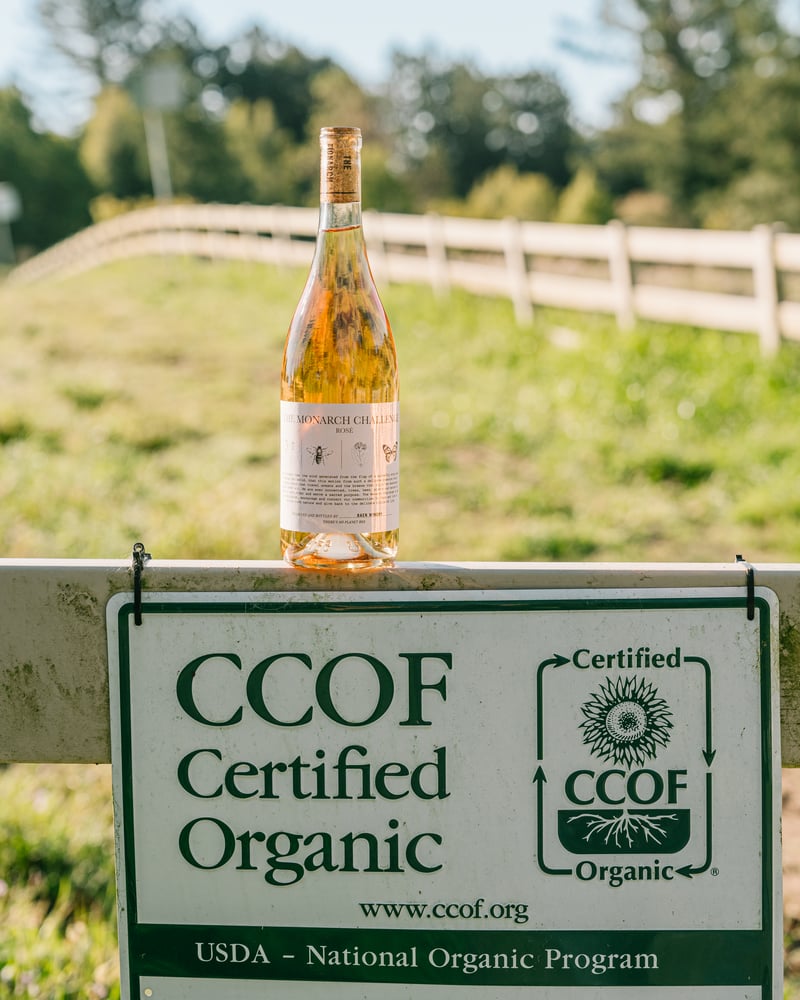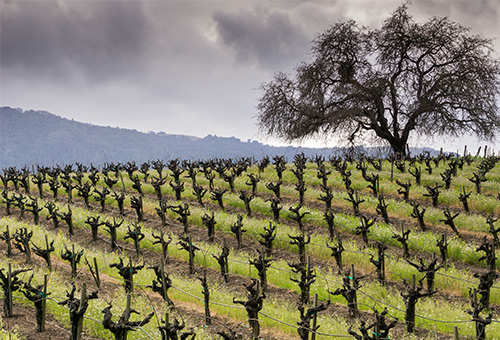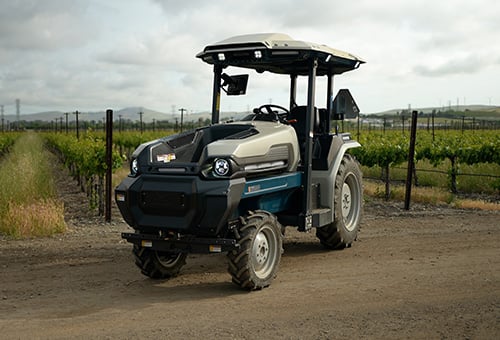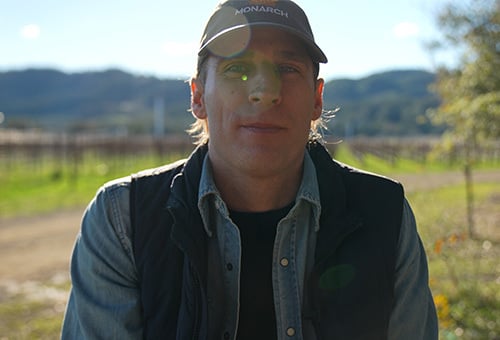by Carlo Mondavi
Chief Farming Officer, Co-founder Monarch Tractor
For Pollinator Week 2025, we pause to honor the silent heroes of our ecosystems . . . the bees, butterflies, bats, birds, and beetles that make life bloom. These tiny pollinators are sacred threads in the web of life, feeding us, sustaining us, and coloring our world. Yet today, nearly 40% of insect pollinator species are on the brink of extinction, and we’re losing them at rates up to 100 times faster than the natural baseline.
-1.png?width=1800&height=600&name=Untitled%20design%20(4)-1.png)
Habitat loss, climate change, and pesticides are driving this crisis. In the past 30 years alone, honeybee colonies, especially our beautiful European honeybees, which are the most famous, have declined by more than 50% in some regions. But the crisis goes much deeper: there are over 20,000 different native bee species worldwide, and in many areas, these native bees have suffered even sharper collapses ... some populations have declined by more than 70%. Unless we change course, scientists warn we could see entire pollinator populations vanish within our lifetimes. This isn’t just about bees or butterflies; it’s about the future of our food, our health, and the natural world that sustains us all.
Respecting Pollinators
At Monarch Tractor, we see this as a profound call to action. Our electric and AI- driven platform, the MK-V electric tractor, is directly addressing the 15% of the world’s fuel burn that comes from agriculture. We’re working to eliminate herbicides entirely. These are some of the most widely used and damaging chemicals for pollinators. While we’re not fully autonomous on every farm today, we already have some farms operating independently in beta testing and many more joining this movement each day.
.jpg?width=1800&height=600&name=Cover%20crop%20mowing%20(1).jpg)
Looking ahead, our goal is that in the near future every farm that fits our AI stack can operate autonomously. And with the power of AI and precision farming, we can slash the use of insecticides and fungicides by up to 95% in certain environments, dramatically reducing chemical exposure in fields that should be alive with the hum of bees.
Pollinator Week has a special meaning for Monarch Tractor. The plight of the monarch butterfly is part of our true North—a symbol that guides everything we do. Its survival is intimately tied to our own: as the monarchs thrive or vanish, so does our ability to produce clean food, protect human health, and maintain a resilient planet. We are one and the same in this ecosystem… our fate and the monarchs are woven together.
.jpg?width=800&name=Raen-February23-24%20(1).jpg)

At Monarch Tractor, one of our mantras is that healthy food is a basic human right. This mantra goes beyond the dinner table; it means restoring our soils, purifying our water, and safeguarding the habitats that sustain pollinators. Inversely, when the monarch butterflies enjoy greater health, so too do we; their well-being reflects the health of the land and the people it feeds.
How to Help
But the fight to save pollinators doesn’t end in the farm fields. Each of us can be part of the solution at home and abroad:
- Support pollinator-friendly farming. Choose organic, regenerative, or local farms that avoid synthetic chemicals.
- Ask the question. Ask chefs, sommeliers, bar tenders, and groceries, how was this farmed.... this question shows that people care and will help be an agent for change.
- Plant native flowers, grasses and protect habitats. Even a single square meter of wildflowers can provide critical forage and nesting sites. For farmers, dedicating a small percentage of land to pollinator habitat—like hedgerows or flowering field borders can be a powerful step in reversing declines and ensuring a healthy ecosystem.
- Live alongside pollinators. Hard working pollinators extend beyond the bees and butterflies. Moths, bats, and even flies help plants and crops grow. Welcome these wildlife visitors into your yard.
- Push for policy change. Demand that your leaders support regenerative farming and phase out harmful pesticides.
- Support the shift from fossil fuel farming to renewables and advocate for clean, electric renewable farming. Support innovation that helps farmers reduce fossil fuel use and chemical inputs. In the end they will discover this doesn't jut make them more independent but also can help the bottom line significantly.
- Introduce people to Monarch Tractor. These introductions help connect the dots and support our mission. We’re always grateful for those who help spread the word... it’s amazing how far that can go.
This Pollinator Week 2025 and all the days ahead, let’s remember: these creatures are not optional. They are guardians of life itself. As we stand on the cusp of transformative change, we remain hopeful . . . hopeful that together, we can forge a path that honors both people and pollinators and restores balance to our shared planet. Let’s protect the hum of vibrant life for generations to come!
Thank you for sharing this mission with us,
Carlo
I’m a farmer and a winemaker, not a businessman. I founded my Sonoma Coast winery, RAEN, in 2013 with my brother, Dante. Our hands and heart are in the soil, vines, and environment where our wines grow. Like all farmers, we are hyper-focused on the relationships between weather, ecosystem health, and high-quality crops. Shortly after starting RAEN, I launched The Monarch Challenge: a movement advocating awareness to protect and nourish our farm biology via our planet’s soils, waterways, our farm teams, and the interconnected web of biodiversity. All farmers care deeply for their land and will do anything to protect the value it holds.
References:
Brunet, J., and Fragosa, P. “What are the main reasons for the worldwide decline in pollinator populations?” CABI Digital Library. https://www.cabidigitallibrary.org/doi/10.1079/cabireviews.2024.0016




.png?width=680&name=Screenshot%202023-10-09%20at%209.11.53%20AM%20(1).png)